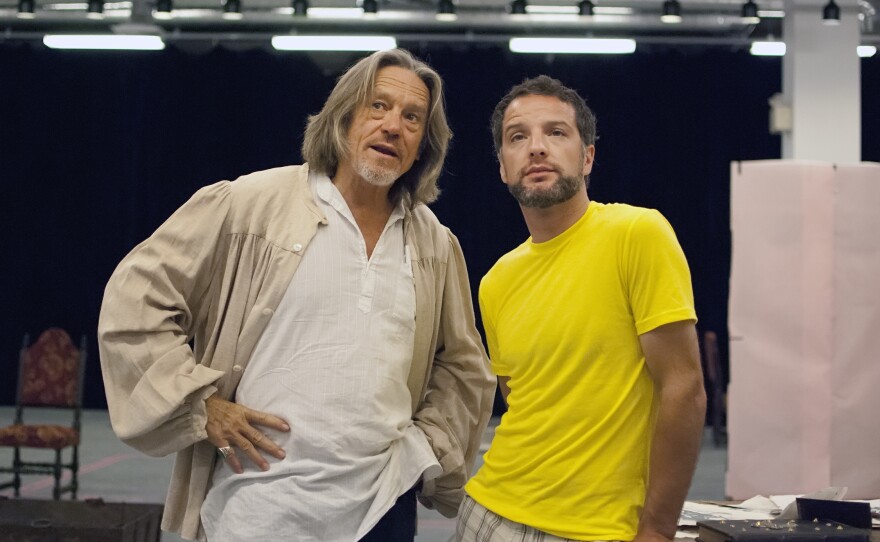Two of history’s most famous artists didn’t like each other at all.
The play is based on true events. Two beloved painters were each asked to create murals on opposing walls in Florence’s Palazzo Vecchio.
There’s da Vinci: painter of "The Last Supper" and the "Mona Lisa.” He’s established, revered and confident. In the other corner, the young upstart, Michelangelo: insecure, moody and pious. He’s finished the "David," but has yet to paint the Sistine Chapel.
Today, such a competition would be fodder for reality television. But this is 16th century Florence. Instead of a TV host stoking the drama, we have Niccolo Machiavelli.
He hoped the murals, both battle scenes, would unite and inspire the Florentine people to defend their republic, instead of relying on a mercenary army.
You might remember Machiavelli from college, when you were assigned to read “The Prince,” his famous book on politics and its machinations.
There’s also that adjective he inspired.
You might say Kramer’s a Machiavelli apologist. “I’m one of those people who think he’s gotten a bum rap in history.”
Kramer left a veteran career as a political journalist to write “Divine Rivalry,” his first play.
He'd long been fascinated by Machiavelli, whose ideas about political leadership continue to resonate (especially with despots!). The surprising slice of history (Machiavelli, da Vinci and Michelangelo in one room...who knew?) gave him a chance to delve into two of his favorite topics: politics and art.
Da Vinci and Michelangelo have a debate – and there are many in this play - about “The Last Supper” and the “Pietà,” a topic that so transfixed Kramer, he initially wrote 70 pages of script about it.
“I wanted to give some sense of how these two incredible geniuses would defend and talk about what they'd done,” explains Kramer.
The Scottish actor Euan Morton, best known for his acclaimed turn as Boy George in the 2003 Broadway production of “Taboo,” plays Michelangelo. Opposite him as da Vinci is Shakespeare Festival veteran Miles Anderson, who wowed last year as Antonio Salieri in “Amadeus.”
Anderson, after playing the frustrated talent Salieri, gets to play every inch the genius in “Divine Rivalry.” “He’s an extraordinary man put up against another extraordinary man,” Anderson grins. “And, of course, Leonardo despises every inch of Michelangelo.”
The play – based on my script read - is quite funny. There’s a recurring joke that Michelangelo doesn’t know how to draw a horse, whereas Leonardo draws them expertly. “If he had to do a horse it would be well hidden. He was always finding an excuse not to draw a freaking horse,” says Morton.
In the end, neither mural was completed. Michelangelo was called away by Pope Julius and da Vinci's "Battle of Anghiari" was only partially completed before a drying process caused the mural's oils to run.
In a fun local twist, UC San Diego professor Maurizio Seracini has been leading a controversial search for the "Battle of Anghiari," which he believes still exists behind another mural in the Palazzo Vecchio.
The search for the lost Leonardo now has another local tie: a stage portrayal of its origins.
Playwright Kramer says he wishes both murals had been completed. "I mean can you imagine how people would flock today to that space in the Palazzo Vecchio if those murals were actually there? It would be extraordinary."
And for a couple of hours at the theater, “Divine Rivalry” helps us imagine just how extraordinary it would be.
"Divine Rivalry" begins Saturday, July 7 and runs through August 5 at the Old Globe.






